Dawson Booth's amazing journey to Augusta University
3/10/2022 | by Golfweek

How one round of golf with three pros landed Dawson Booth — who is blind in one eye — a spot on Augusta University's team
Editor’s note: AmateurGolf.com and Golfweek have teamed up to cover the amateur game from top to bottom.
Brock Hoover had played golf with his Augusta University teammate and roommate Dawson Booth roughly 10 times before realizing that Booth was blind in one eye. Hoover had gone in for a routine fist-bump and had to call out “Dawson!” to get his attention.
“Oh, I’m sorry,” Booth explained. “I’m blind in my right eye.”
Handshakes can get awkward for Booth, too, as the lack of depth perception means he sometimes misses the other person’s hand entirely.
Diagnosed with uveitis, an inflammation that impacts the middle layer of the eye, at age 3, Booth had cataract surgery two years later and was diagnosed with glaucoma at age 12. Juvenile idiopathic arthritis is the underlying condition that ultimately led to a lifetime of vision impairments that culminated with six surgeries during his junior year of high school.
During one particularly harrowing complication, Booth’s right eye had to be patched back together with a synthetic graft made in a lab.
“I call it the bionic eye,” he said good-naturedly.
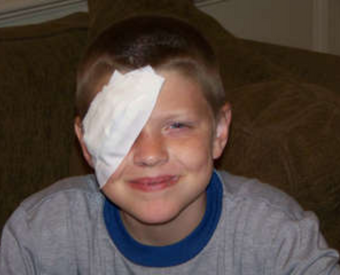
Dawson Booth
By the time it was time to pick a college, Booth, a former baseball pitcher, had given up on the dream of playing college golf and was set to follow the family tradition of majoring in mechanical engineering at Georgia. While in Athens, he played one round of golf with a friend who played on a women’s club team but had mostly moved on from the game competitively.
When the COVID-19 pandemic hit, Booth moved back home to Augusta, Georgia, where his parents live at Champions Retreat. He started practicing again with a friend who played collegiately at USC-Aiken, and one day was invited to play a round of golf with PGA Tour pros Luke List and Henrik Norlander and PGA Tour Champions player Scott Parel.
“I birdied four of the first five holes,” said Booth, “and they were like who is this kid?”
All three pros individually called Augusta head coach Jack O’Keefe about Booth, imploring him to give the kid a look.
“He shot 68 I believe and beat or tied all of them,” said O’Keefe, a former PGA Tour player.
O’Keefe took them up on the idea, giving Booth a second chance at a childhood dream. Booth is now a sophomore athletically and a junior academically.
“He’s just been a wonderful young man,” said O’Keefe. “A true student-athlete who puts academics first. He puts his faith first as well … having to deal with what he’s had to deal with from an early age, a real inspiration really for a lot of these guys on the team and me as well.”
O’Keefe describes Booth as one of the most naturally talented players on the team. He hits it a mile but is learning to tone down some of that swing speed to eliminate big numbers.
Because of his vision impairment, Booth relies on his feet a lot to gauge the level of the ground and slope.
“What other people can see and feel and do,” he said, “I have to feel and do.”
Booth competed in four events for the Jaguars last fall, compiling a 75.83 scoring average.
“The biggest thing is just trying to settle him down a little bit,” said O’Keefe. “He wants it so bad.”
The PGA Tour is Booth’s current Plan A, though he has switched his major to chemistry with medical school in mind. A mission trip to Jamaica opened Booth’s heart again to becoming an eye doctor, something he’d long ago considered but shied away from due to the number of years he’d be in school.
A chance conversation with a blind man in a Jamaican infirmary, however, changed that perspective. When Booth realized that the man’s condition could’ve been totally preventable had he been able to afford surgery, he knew that he had to help. Whether Booth makes it on Tour and one day starts a foundation or goes to medical school himself to perform the surgeries, the young man is determined to make a difference.
Booth wears glasses when he plays to protect his left eye. Blunt force trauma triggered the condition in his right eye to progress more quickly, but he knows he’ll likely lose vision in his left eye one day too, whether that’s in the coming years or when he’s 80.
It’s the reason why he rises early in the morning to make the most of every day.
Booth is intrigued by the USGA’s new U.S. Adaptive Open, which will debut this July at Pinehurst Resort & Country Club’s Course No. 6. The field will include 96 players, with at least five male players and two female players per impairment category. Vision impairment is among the eight categories.
The biggest key for Booth, O’Keefe said, is tournament reps after taking so much time away from competitive golf. Most people wouldn’t have a clue that Booth is blind in one eye. An observant person could tell that something is wrong simply because his right eye is usually red and kind of swollen. Otherwise, it’s business as usual for Booth, a man with big plans and a bigger heart.
“He just fights through it,” said O’Keefe. “He doesn’t make any excuses, ever.”
by Beth Ann Nichols, Golfweek
Brock Hoover had played golf with his Augusta University teammate and roommate Dawson Booth roughly 10 times before realizing that Booth was blind in one eye. Hoover had gone in for a routine fist-bump and had to call out “Dawson!” to get his attention.
“Oh, I’m sorry,” Booth explained. “I’m blind in my right eye.”
Diagnosed with uveitis, an inflammation that impacts the middle layer of the eye, at age 3, Booth had cataract surgery two years later and was diagnosed with glaucoma at age 12. Juvenile idiopathic arthritis is the underlying condition that ultimately led to a lifetime of vision impairments that culminated with six surgeries during his junior year of high school.
During one particularly harrowing complication, Booth’s right eye had to be patched back together with a synthetic graft made in a lab.
“I call it the bionic eye,” he said good-naturedly.

Dawson Booth
When the COVID-19 pandemic hit, Booth moved back home to Augusta, Georgia, where his parents live at Champions Retreat. He started practicing again with a friend who played collegiately at USC-Aiken, and one day was invited to play a round of golf with PGA Tour pros Luke List and Henrik Norlander and PGA Tour Champions player Scott Parel.
“I birdied four of the first five holes,” said Booth, “and they were like who is this kid?”
All three pros individually called Augusta head coach Jack O’Keefe about Booth, imploring him to give the kid a look.
“He shot 68 I believe and beat or tied all of them,” said O’Keefe, a former PGA Tour player.
O’Keefe took them up on the idea, giving Booth a second chance at a childhood dream. Booth is now a sophomore athletically and a junior academically.
“He’s just been a wonderful young man,” said O’Keefe. “A true student-athlete who puts academics first. He puts his faith first as well … having to deal with what he’s had to deal with from an early age, a real inspiration really for a lot of these guys on the team and me as well.”
O’Keefe describes Booth as one of the most naturally talented players on the team. He hits it a mile but is learning to tone down some of that swing speed to eliminate big numbers.
Because of his vision impairment, Booth relies on his feet a lot to gauge the level of the ground and slope.
“What other people can see and feel and do,” he said, “I have to feel and do.”
Booth competed in four events for the Jaguars last fall, compiling a 75.83 scoring average.
“The biggest thing is just trying to settle him down a little bit,” said O’Keefe. “He wants it so bad.”
The PGA Tour is Booth’s current Plan A, though he has switched his major to chemistry with medical school in mind. A mission trip to Jamaica opened Booth’s heart again to becoming an eye doctor, something he’d long ago considered but shied away from due to the number of years he’d be in school.
A chance conversation with a blind man in a Jamaican infirmary, however, changed that perspective. When Booth realized that the man’s condition could’ve been totally preventable had he been able to afford surgery, he knew that he had to help. Whether Booth makes it on Tour and one day starts a foundation or goes to medical school himself to perform the surgeries, the young man is determined to make a difference.
Booth wears glasses when he plays to protect his left eye. Blunt force trauma triggered the condition in his right eye to progress more quickly, but he knows he’ll likely lose vision in his left eye one day too, whether that’s in the coming years or when he’s 80.
It’s the reason why he rises early in the morning to make the most of every day.
Booth is intrigued by the USGA’s new U.S. Adaptive Open, which will debut this July at Pinehurst Resort & Country Club’s Course No. 6. The field will include 96 players, with at least five male players and two female players per impairment category. Vision impairment is among the eight categories.
The biggest key for Booth, O’Keefe said, is tournament reps after taking so much time away from competitive golf. Most people wouldn’t have a clue that Booth is blind in one eye. An observant person could tell that something is wrong simply because his right eye is usually red and kind of swollen. Otherwise, it’s business as usual for Booth, a man with big plans and a bigger heart.
“He just fights through it,” said O’Keefe. “He doesn’t make any excuses, ever.”
by Beth Ann Nichols, Golfweek
Most Popular Articles
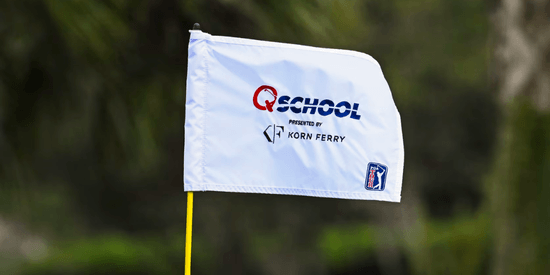
2025 PGA TOUR Q-School Guide: Sites, Scores, and Who Advanced
Dec 5, 2025Second Stage is complete and Final Stage awaits at Sawgrass — follow every Q-School leaderboard and the players still chasing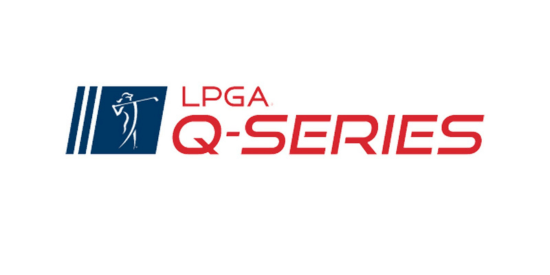
2025 LPGA TOUR Q-Series: Final Qualifying Stage FINAL SCORING
Dec 8, 2025Helen Briem earns medalist honors, 31 players headed to the LPGA next year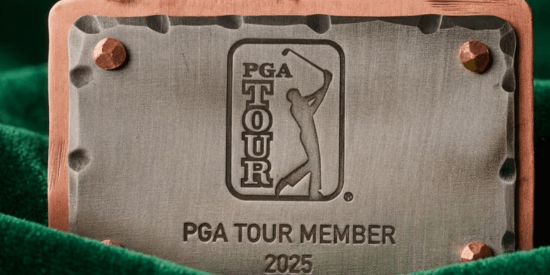
2025 PGA TOUR Q-School Final Stage: Ewart Leads Five New TOUR Card Winners
Dec 14, 2025A.J. Ewart topped Final Stage at TPC Sawgrass, leading five players who secured PGA TOUR membership for 2026.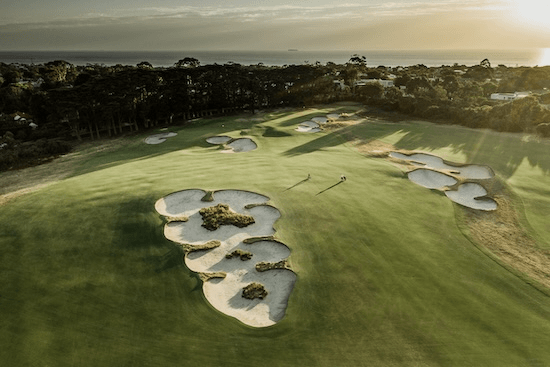
Australian Open at Royal Melbourne: Preview, amateur bios, and how to watch
Nov 30, 2025Rory McIlroy headlines one of the championship's top fields in years - at least four amateurs will have their chance at gloryInside Gil Hanse’s Restoration of Baltusrol’s Upper Course: A Return to Tillinghast’s
Dec 11, 2025Renowned architect Gil Hanse reveals how he brought Baltusrol’s Upper Course back to life by honoring A.W. Tillinghast’s originalLoading latest news...
